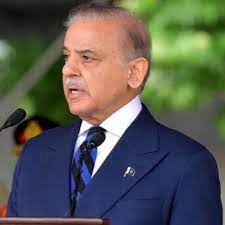
India to Urge FATF to Include Pakistan in Grey List

 :
| Updated On: 23-May-2025 @ 2:43 pm
:
| Updated On: 23-May-2025 @ 2:43 pmSHARE
India is set to approach the Financial Action Task Force (FATF), the global watchdog on money laundering and terrorist financing, to urge the addition of Pakistan to its grey list during the upcoming FATF meeting. According to a top government source cited by Reuters, the grey list includes jurisdictions that are subject to increased monitoring due to strategic deficiencies in combating money laundering and terrorism financing. Being on the grey list means that the country has committed to address these deficiencies within a set timeframe and remains under close scrutiny. Currently, about 25 countries are on the FATF grey list. Pakistan was removed from this list in 2022, which helped improve its credibility among lenders—an important factor for its economy, which has been under crisis.
Despite Pakistan’s removal from the list, India plans to oppose any upcoming financial aid from the World Bank to Pakistan. This diplomatic stance comes amid rising tensions between the two nuclear-armed neighbors, reflecting broader geopolitical challenges.
Meanwhile, the International Monetary Fund (IMF) recently justified its approval of a $1 billion bailout package for Pakistan, stating that Islamabad met all the necessary conditions to receive the latest tranche of funds. Under the Extended Fund Facility (EFF) program, which began in September 2024, Pakistan has so far received around $2.1 billion. However, given the strained India-Pakistan relations, the IMF imposed 11 additional conditions on Pakistan to continue accessing the loan. These conditions reportedly include parliamentary approval, increased debt servicing surcharges on electricity, and lifting restrictions on imports, among others.
India has urged the IMF to reconsider its bailout package, arguing that the funds could be used to finance cross-border terrorism. Defense Minister Rajnath Singh had previously described the IMF aid to Pakistan as a form of “indirect funding to terror.” The Indian government also reportedly conveyed to the IMF that Pakistan’s arms purchases tend to spike whenever the country receives a loan, highlighting concerns about the misuse of financial aid.
Prime Minister Narendra Modi, in a recent public address in Bikaner, Rajasthan, issued a stern warning to Pakistan over its continued support for terrorism. Modi asserted that Pakistan uses terrorism as a weapon against India because it cannot win a direct military confrontation. He stressed that Pakistan would have to pay a heavy price for every terrorist attack launched from its soil. “Pakistan will have to pay a heavy price for every terrorist attack … Pakistan’s army will pay it, Pakistan’s economy will pay it,” Modi stated emphatically.
The combined diplomatic and financial pressure from India aims to hold Pakistan accountable for its alleged support of terrorism and to curtail the misuse of international financial aid. The renewed call to include Pakistan in the FATF grey list and opposition to World Bank funding reflect India’s strategy to isolate Pakistan internationally and ensure global financial institutions do not indirectly support terrorism through aid.
In summary, India is mobilizing international mechanisms to pressure Pakistan on financial and security fronts, emphasizing accountability and regional stability amid escalating tensions. The ongoing diplomatic efforts highlight the intersection of international finance, security concerns, and geopolitics in South Asia.